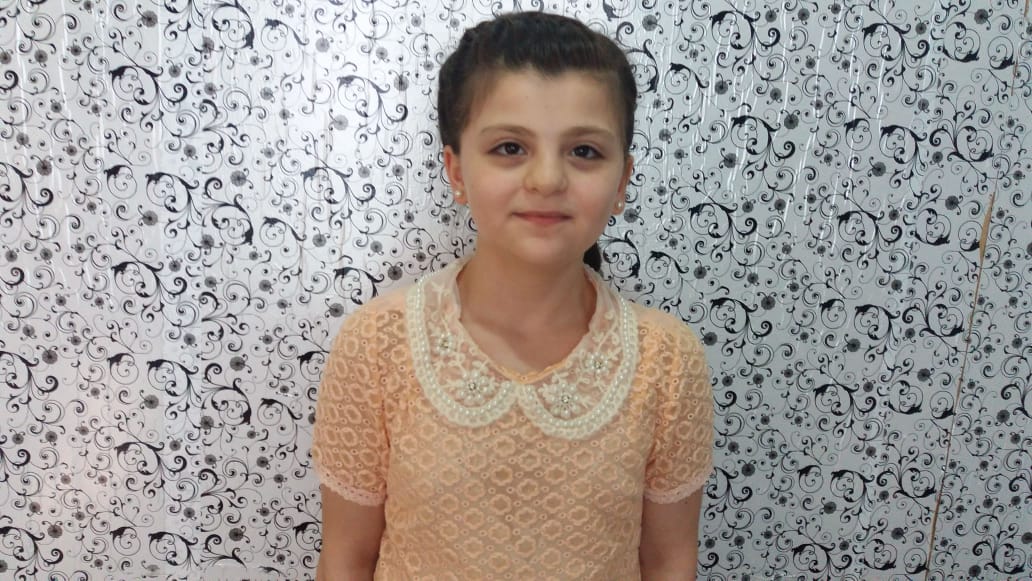
Malak*, 12 years old, a grade four student at Nicolas Kluiters Centre in Jbeil. This is her first year with JRS.
The sudden shift to online learning due to the spread of Covid-19 has affected everyone at school from tutors to students to parents. Teachers give lessons using mobile phone applications, videos and other technology; students now learn through the use of mobile phones instead of the traditional classroom setting, and parents must facilitate the learning process so that their children get the most out of their daily lessons.
Malak*, age 12, fled to Lebanon from Syria with her family eight years ago. She is a fourth grader at a local public school in Jbeil and simultaneously attends JRS’s learning support progamme at the Nicolas Kluiters Centre (NKC), which gives extra help to students so that they can thrive in school.
Despite the transition to learning online, Malak has quickly adapted to studying on WhatsApp and participates in all of the daily JRS classes from 8am to 11am.
“Online learning is not complicated for me. The lessons are being explained very well through WhatsApp videos, and if there is something unclear, I can ask about it,” she says.
Although she admits that she sometimes has difficulty asking questions in the WhatsApp group. “I feel embarrassed among my friends in the group. I can ask the tutor in private, but it is preferable to ask the questions in the group so everyone can benefit from the tutor’s answers.” She is a conscientious student, who watches the videos shared by her tutors several times in order to fully understand the lessons.
Malak’s mother, Alaa, has also had to adapt to online learning quickly, and had to equip her home with wifi so that her children could attend. Both Malak and her brother, Ahmad*, also in the fourth grade, have class at the same time, but with only one mobile phone in the household they must take turns using it.
“For me, the first two days of online learning were very strange and I was very confused, but after that it became normal and I encouraged my children to stick to the schedule, and send the solved homework on time. Now, I make sure that they both start together to stay on track,” says Alaa.
Before online learning began, Alaa was supporting her children with their homework assignments, but now must also commit to explaining any lessons which her children do not fully understand. “I really like this experience because I am receiving lots of information and refreshing my memory,” she says.
“Communicating with the tutors is easier on WhatsApp. I can reach them at any time to check up on my children’s performance. Before, I had no option but to visit the school and spend time to do this, so it is time saving for me on WhatsApp.”
Malak still misses her tutors and her friends at the school. “The tutors used to motivate me in the classroom when they used to congratulate me on my performance, saying “Bravo,” and my friends used to encourage me by applauding for me all together. I used to feel so proud of myself in these moments.”
She is making the best of her time during the quarantine by practising drawing, her favorite hobby. “I draw anything that comes to my mind because it expresses what’s inside me. I started drawing at age six.” She dreams of becoming a pilot in the future and traveling the world. Online learning has taught her that education can be pursued regardless of the obstacles that we face.
*names changed to protect the identity of the individuals.
This article was originally published by Jesuit Refugee Service www.jrs.net

